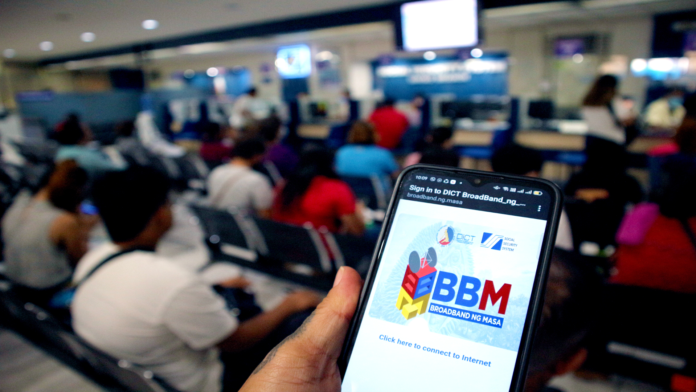A measure providing a “cheaper and more accessible” internet for all is one step closer to becoming law after the House of Representatives passed the bill on third and final reading.
During the plenary session on Wednesday, lawmakers unanimously approved House Bill (HB) 10699, otherwise known as “Sana All May Internet Act,” with a vote of 203.
The bill eliminates the spectrum users fee (SUF) that telecommunications currently pay to the national government regulator for the use of specific frequencies.
House Committee on Information and Communications Technology chairperson and Navotas Rep. Toby Tiangco, author of the bill, said the proposed zero SUF aims to “encourage and empower small players in the industry to provide affordable internet services, especially in the unserved and underserved areas.”
HB 10699 seeks to enable the proliferation of Wi-Fi technology usage and facilitate infrastructure development, eventually lowering the cost of delivering telecommunications services to end users.
Under the measure, the Department of Information and Communications Technology (DICT) and the National Telecommunications Commissions (NTC) shall be prohibited from imposing a levy, charge, or collecting fees from the telecommunications for their use of the specified Wi-Fi frequencies.
It shall cover Wi-Fi frequencies at 2.4-2.4835 gigahertz (GHz), 5.150- 5.350 GHz, and 5.470-5.850 GHz, and any other frequency band that the NTC may deem open and unprotected after due notice and hearing.
However, the bill authorizes the NTC to add to the list of the frequencies should there be “any new frequency that may fall or be included into the definition of open and unprotected spectrum.” (PNA)


